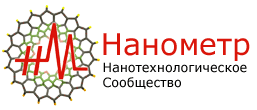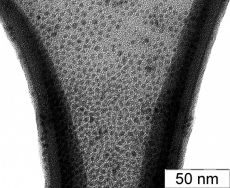26 июня состоится бесплатный вебинар "Наночастицы для биомедицины: получение и исследование" (Nanoparticle fabrication and characterization for biomedical research applications), организованный фирмой Thermo Scientific.
Nanotechnology refers to a field of applied science and technology that involves materials and devices that are typically smaller than 200 nanometers (nm) in diameter - nanoparticles. The combination of nanotechnology and biomedical sciences can lead to novel therapies such as targeted drug delivery, gene therapy, as well as diagnostics (new biomedical devices and biomarkers). Dr. Jennifer Grossman is a Scientist at the National Cancer Institute’s Nanotechnology Characterization Laboratory and will give an overview on nanoparticles – what they’re made of, their interesting properties and limitations – as well as discuss methods for characterizing and quantifying these particles. Dr. Pascale Leroueil is the Scientific Program Manager for the Michigan Nanotechnology Institute for Medicine and Biological Sciences and will describe how nanoparticles can be used for biomedical research applications.
Drs. Grossman and Leroueil will answer questions from webinar attendees so be sure to attend and get answers from the experts!
What you will learn in this webinar:
• What nanoparticles are and why they are interesting in life science research
• Considerations for synthesizing and characterizing nanoparticles
• Safety and toxicity considerations
• Methods for functionalizing nanoparticles for biomedical research applications
• Discussion of applications of nanoparticles in treating diseases such as cancer
Who should attend:
• Bench scientists who need to become knowledgeable about methods for characterizing nanoparticles
• Researchers who may want to incorporate nanotechnology approaches into their studies
• Researchers who want to learn about functionalizing nanoparticles
• Those interested in translating the basic science of nanoparticle research into clinical applications.
Dr. Jennifer Hall Grossman is a Scientist at the National Cancer Institute (NCI)’s Nanotechnology Characterization Laboratory (NCL), a formal collaboration among NCI, the National Institute of Science and Technology (NIST), and the FDA. At the NCL, Dr. Grossman is part of a team responsible for testing candidate nanotech drugs and diagnostics, evaluating safety and efficacy, and assisting with product development from proof-of-concept, discovery-level work, through scale-up, into clinical trials. NCL also provides nanomaterial testing support to the academic community, industry partners, and many government collaborators in support of studies to address environmental health science implications of nanotechnology. Prior to joining the NCL in 2006, Dr. Grossman conducted research in Physical Chemistry at the University of Maryland. She holds a Ph.D. in Physical Chemistry, an M.S. in Chemical Physics and a B.S. in Physics.
Pascale R. Leroueil, Ph.D. is the Scientific Program Manager at the University of Michigan’s Nanotechnology Institute for Medicine & Biological Science, which is directed by Dr. James R. Baker, Jr., M.D.. The Institute’s highly cross-disciplinary research focuses on the synthesis, characterization and use of nanoparticles, to treat diseases such as cancer, Hepatitis B & rheumatoid arthritis. As the Scientific Program Manager of the Institute, Pascale has developed a broad technical scientific background ranging from applied physics to immunology. Formally trained as a physical chemist, her research before joining the Institute focused on examining how the physical properties of nanoparticles affect their interaction with real and model cell membranes.
Thermo Scientific NanoDrop Instruments employ a patented sample-retention system that enables direct measurement of 0.5 – 2 µL samples without wasteful dilutions and expensive consumables. The NanoDrop™ 2000c spectrophotometer has the ability to measure small volume samples over a wide concentration range, making it an ideal instrument where very small amounts of concentrated particles are produced.
Learn more at http://www.nanodrop.com/nanoparticles.aspx

